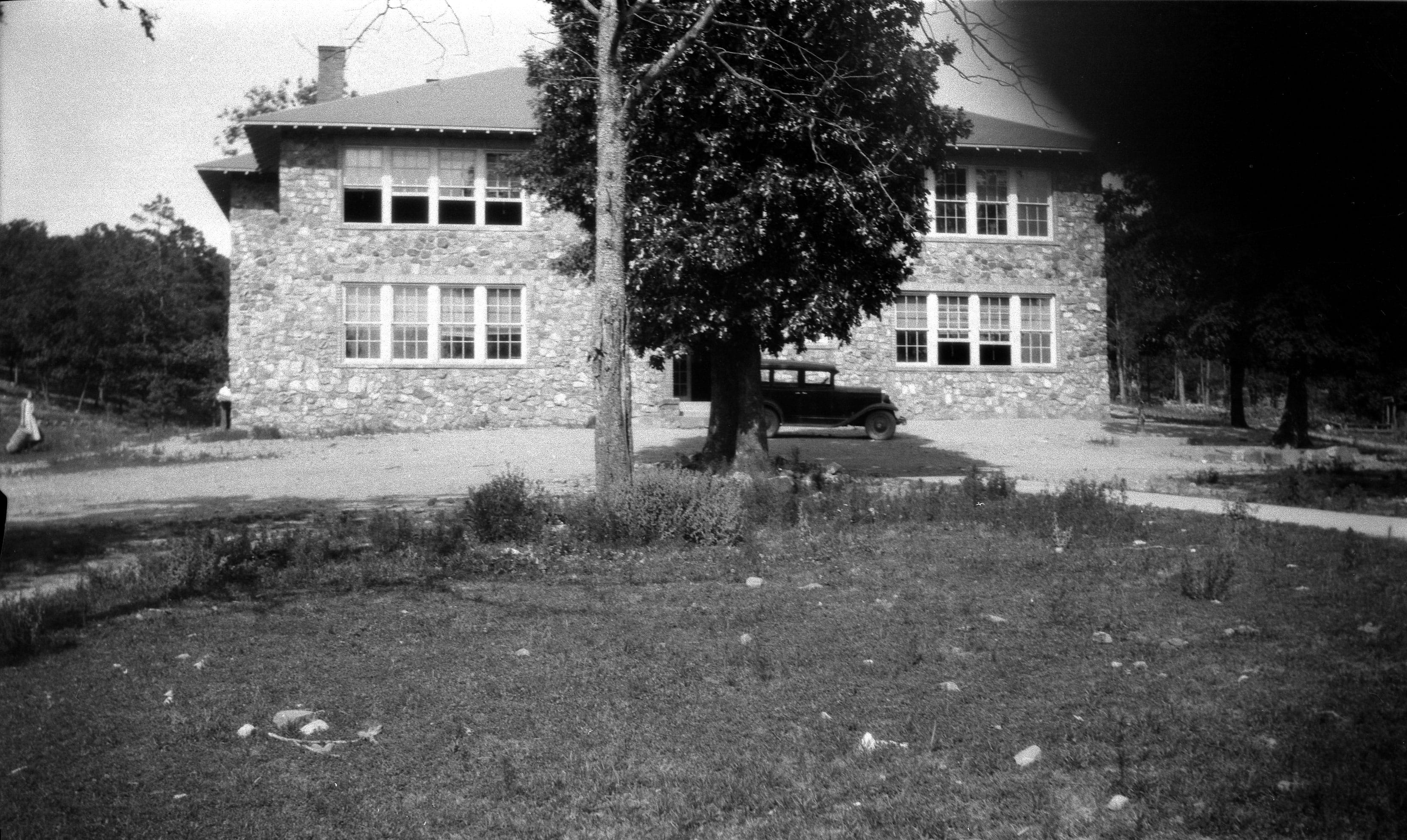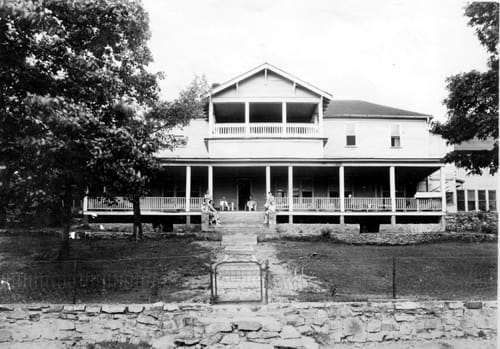

Uh oh...
It appears that you're using a severely outdated version of Safari on Windows. Many features won't work correctly, and functionality can't be guaranteed. Please try viewing this website in Edge, Mozilla, Chrome, or another modern browser. Sorry for any inconvenience this may have caused!
Read More about this safari issue.


When the railroad chugged into western Arkansas at the turn of the 20th century, it delivered opportunity, controversy and education to boys – and girls – in Montgomery County.

In 1907, the Gurdon-Fort Smith Railroad (later acquired by Missouri Pacific) brought new economic opportunity to the county, but not without turf wars and political intrigue. They established the Caddo Valley Academy in Womble (now Norman), Arkansas, in 1921. A mountain mission school, the academy was private. It provided instruction in the standard curriculum as well as biblical teaching. Walter Womble, a member of the Womble family for whom the town was originally named, alleged that funds had been misused by allowing the academy to use the original public school building for classes. Dr. John Tilman Barr, Jr., a Presbyterian minister and a member of the Womble school board, started construction on a new building in 1924 with funds from the Presbyterian Church and other donations.
“Dr. Barr was devoted to the Presbyterian church, and his first and last placement was in Womble,” said Emilie Kinney, Director of Heritage House Museum of Montgomery County. “Before the academy, there was a school system in place that offered basic courses up to the eighth grade. The academy was private, but many of the students had their tuition provided by the church. The allegations Mr. Womble brought against the school board, and Dr. Barr did not go over well with the town’s citizens. While there is no documentation for the town’s name change, the story is Womble became Norman to honor a particular donor from California who contributed a significant amount of money to the academy.”

By 1925, the Caddo Valley Academy offered classes to junior and senior high school students. By privatizing the school, Dr. Barr attracted more qualified teachers and eventually offered all 12 grades. In addition to standard academics, the academy offered piano and home economics classes, among other electives. Tuition was reasonable – $42 less per year than other private schools at the time. And the academy maintained its tuition at $9 per year for junior high students and $18 for senior high students. By relying on church funds and donations for its financial support, the academy always struggled financially. In 1931, the Montgomery County School Board took over control of the school.

“Caddo Valley Academy became Norman Public High School, which benefited from receiving state funds,” Emilie said. “It was the first accredited high school in Montgomery County, and although it was no longer a mission of the Presbyterian Church, Dr. Barr was still active in its operation.”
During its decade in existence, Caddo Valley Academy graduated about 80 students, of which more than half were young women. Today, the Caddo Valley Academy/Norman High School Complex is on the National Register of Historic Places.
Photos courtesy of Heritage House Museum of Montgomery County.
We do the work.
You check your email.
Sign up for our weekly e-news.
Get stories sent straight to your inbox!








Like this story? Read more from KD Reep
The postal destination for lovers, Romance, Arkansas, was not the...
You know who they are: the people in your life who have everything. The...
It was the first war fought on television. As families sat at the supper...
Join the Conversation
Leave a Comment